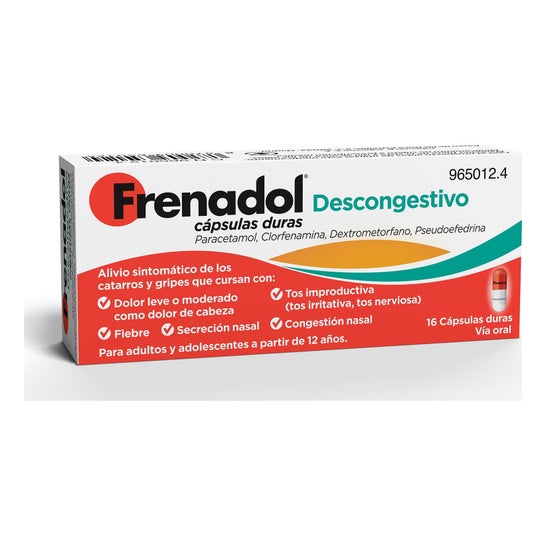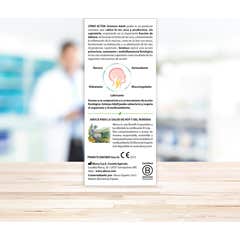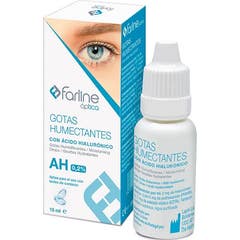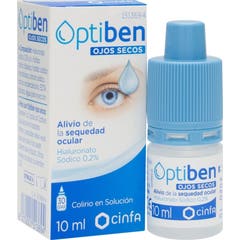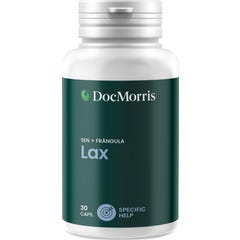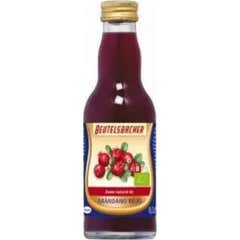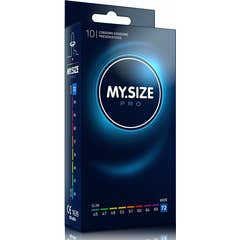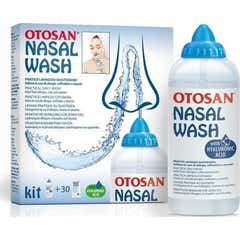Label information
Warnings and precautions
- You should not take more than the recommended dose in section 3. How to take FRENADOL® Decongestant. Taking more than the recommended dose (overdose) can result in liver damage. In case of overdose, seek medical help immediately. Quick medical attention is critical for adults as well as for children, even if you do not perceive any signs or symptoms.
- Chronic alcoholics should ask their doctor if they can take paracetamol, other analgesics, or medicines that reduce fever. Additionally, they should be cautious not to take more than 4 capsules a day (2 g of paracetamol) and should consult their doctor if they need to take paracetamol or other fever reducers (products for adults).
- Patients who regularly consume alcohol (3 or more alcoholic drinks -beer, wine, liquor,...- per day) may experience liver damage from taking this medication.
- While taking this medication, you cannot take others that contain paracetamol because it could lead to a paracetamol overdose that could damage the liver. Do not use more than one medication that contains paracetamol without consulting your doctor.
- You also cannot take other medications that contain nasal decongestants. In case of overdose, go to your doctor immediately. Quick medical attention is critical for both adults and children, even if no signs or symptoms are observed.
- If small pustules form, mainly non-follicular, which may or may not be accompanied by fever and a disseminated edematous erythema, mainly located in skin folds, the trunk, and the upper extremities especially in the first 2 days of treatment. You may be suffering from acute generalized exanthematous pustulosis that must be monitored medically.
- If sudden abdominal pain, rectal bleeding, or other symptoms of developing ischemic colitis appear. Treatment should be discontinued and a doctor consulted. Severe skin reactions, such as generalized exanthematous pustulosis (AGEP), Stevens-Johnson syndrome (SJS), toxic epidermal necrolysis (TEN), and drug reaction with eosinophilia and systemic symptoms (DRESS) have been reported very rarely in patients receiving paracetamol. Patients should be informed about the signs of severe skin reactions, and the use of the medication should be discontinued at the first appearance of a rash or any other sign of hypersensitivity.
- Cases of reversible posterior encephalopathy syndrome (PRES) and reversible cerebral vasoconstriction syndrome (RCVS) have been reported after the use of medications containing pseudoephedrine. PRES and RCVS are rare diseases that may involve reduced blood flow to the brain. Stop using FRENADOL® Decongestant immediately and seek immediate medical assistance if you experience symptoms that may be signs of PRES or RCVS (to know the symptoms, see section 4 "Possible adverse effects").
Should you consult your doctor or pharmacist before starting to take FRENADOL® Decongestant:
- Patients with kidney diseases, pre-existing heart diseases (such as arrhythmias or coronary artery disease), or lung diseases, and patients with anemia.
- Patients with liver diseases (with or without liver failure) or viral hepatitis, because it increases the risk of hepatotoxicity.
- Asthmatic patients sensitive to acetylsalicylic acid.
- Patients sensitive (allergic) to an antihistamine, because they may be sensitive to others (such as chlorpheniramine).
- Patients with hypertension (high blood pressure), glaucoma (high eye pressure), hyperthyroidism, bladder neck obstruction, symptomatic prostatic hypertrophy, difficulty urinating, and urinary obstruction or retention.
- Patients with atopic dermatitis.
- Patients with diabetes mellitus.
- Patients with thyroid disease.
- Patients with a persistent respiratory condition such as emphysema, chronic bronchitis, bronchial asthma, or those who have a cough accompanied by excessive secretions.
- Patients with difficulty urinating and/or prostatic hyperplasia.
- Patients who have a slow CYP2D6 metabolism or who use CYP2D6 inhibitors.
Patients with a persistent respiratory condition such as emphysema, chronic bronchitis, bronchial asthma, or those who have a cough accompanied by excessive secretions, glaucoma, prostatic hyperplasia with residual urine formation, are advised to consult a doctor before using this product.
During treatment with FRENADOL® Decongestant, inform your doctor immediately if:
You have serious illnesses, such as severe renal failure or sepsis (when bacteria and their toxins circulate in the blood, causing organ damage), or if you suffer from malnutrition, chronic alcoholism, or if you are also taking flucloxacillin (an antibiotic). A serious condition called metabolic acidosis (an abnormality in the blood and fluids) has been reported in patients in these situations when using paracetamol at regular doses for a prolonged period or when taking paracetamol along with flucloxacillin. Symptoms of metabolic acidosis may include: severe difficulty breathing with deep and rapid breathing, drowsiness, a feeling of discomfort (nausea), and vomiting.
With FRENADOL Decongestant, blood flow to the optic nerve may be reduced. If you experience a sudden loss of vision, stop taking FRENADOL Decongestant and contact your doctor or seek immediate medical attention. See section 4.
This medication may cause dependence. Therefore, treatment should be of short duration. Special caution is recommended in adolescents and young adults, as well as in patients with a history of drug abuse or use of psychoactive substances.
This medication may cause sedation. Avoid consuming alcoholic beverages and certain medications while being treated with this medication, as they may enhance this effect. Consult the sections “Taking FRENADOL® Decongestant with other medications” and “Taking FRENADOL® Decongestant with food, beverages, and alcohol.”
Patients over 60 years old may be especially sensitive to the adverse effects of the medication because it contains pseudoephedrine, which is a sympathomimetic amine. Overdose that may occur from sympathomimetic amines in these patients over 60 years old can cause hallucinations, CNS depression, seizures, and death.
Patients who are sedated, weakened, or bedridden should not take this medication.
In rare cases, severe skin reactions may occur with: redness, blisters, or rashes. If you notice any of these symptoms, stop treatment and consult your doctor.
It is recommended not to take at the same time as other medications for cough or nasal congestion. Consult “Taking FRENADOL® Decongestant with other medications.”
If you are going to have surgery, you should stop treatment with this medication at least 24 hours before.
Children
Children under 12 years old cannot take this medication due to the dosage of its active ingredients.
Safety visual aids
We recommend that you read the package leaflet before using the product for safety warnings.
Manufacturer details
Details of the manufacturer can be found in the package leaflet.
Authorised EU Representative
Details of the manufacturer and, if applicable, the EU Responsible Party can be found in the package leaflet.

